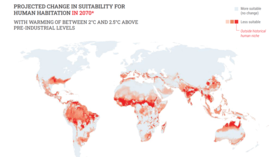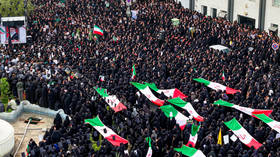Nearly 100 dead in Indian heatwave

At least 96 people have died following several days of intense heat in two of India’s most populous states. Authorities have warned at-risk members of the public to stay indoors to avoid aggravating pre-existing health conditions.
The deceased were primarily people over 60 who had prior health concerns in the northern state of Uttar Pradesh and in eastern Bihar, authorities said. All of the 54 deaths in Uttar Pradesh occurred in Ballia district, where hospitals have admitted a steady influx of patients seeking treatment for heat-related ailments including high fever, vomiting, diarrhea, as well as breathing and cardiac issues.
Uttar Pradesh’s health minister, Brijesh Pathak, has opened an investigation into the high number of deaths in the state. Local governments have come under fire from opposition for “carelessness” in not warning the public about the potential health risks of the heatwave, the BBC said on Monday.
“This has never happened in Ballia,” local resident RS Pathak said last weekend, via the Associated Press. “People fear venturing out. The roads and markets are largely deserted.”
On Sunday, Ballia recorded a maximum temperature of 43C (109F) – figures which eclipse the normal average by around 5C. Humidity of 25% is also contributing to the sweltering heat. “No relief is expected in the next 24 hours,” India’s Meteorological Department said on Sunday, indicating that the heatwave is set to extend through Monday.
Eastern Bihar, meanwhile, registered 42 deaths over the past few days. Its state capital Patna saw temperatures just slightly below 45C (113F) on Saturday.
India typically experiences its hottest annual temperatures in the summer months of April, May and June before the monsoon season reduces the heat. However, the past decade has seen the country grapple with unusually intense, rising heat which often leads to water shortages in the country of 1.4 billion people.
A study conducted by an academic group earlier this year determined that intense heatwaves in South Asia have been made around 30 times more likely as a result of human-induced climate change. India has seen a 55% rise in heat-related deaths from 2000 to 2021, according to analysis in the scientific journal The Lancet.













